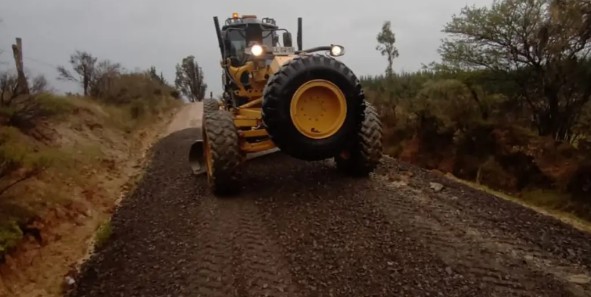The manager of the Association of Forestry Contractors, René Muñoz, observed how the violence entrenched in productive zones has pushed the activity out of the territories where it was normally carried out, taking jobs with it and slowing regional development. Due to this, he called on the responsible authorities to take accountability for the situation to promote the economic activity of the regions.
The union representative, in conversation with La Tribuna newspaper, stated that "in the forestry sector, insecurity, markets, and crimes affecting our activity are causing a decline in forestry zones across the country and the region."
In this context, he insisted that "this is impacting the behavior of companies providing services in the region, leading them to shift industries or relocate to other areas because the reality is that it’s very difficult to work in the region under the constant threat of losing your capital."
He cited the example of Arauco’s closure of a sawmill, which resulted in the loss of over 90 direct jobs and another 21 from related service companies.
FORESTRY ACTIVITY MOVES TO OTHER AREAS
Another consequence, he added, "is that other forestry destinations are being sought, mainly in northern Biobío and southern Los Lagos. Business owners are moving because the situation is unsustainable."
"After so many years, no business owner or contractor can endure constant violence, which also happens in state projects supporting provinces," said the Acoforag manager.
According to him, "there are no longer companies willing to work on road reconstruction, rural electrification, or housing construction in rural areas. There’s a labor shortage precisely because of everything that’s happening."
According to René Muñoz, "this is a direct effect. The migration of activity to other places is creating problems across the entire chain, both administratively and operationally. There may be other industries or companies that want to establish themselves in the territory, though I see it as unlikely—even if it’s an alternative."
The executive stated, "We business owners must seek different alternatives where we can find peace, progress, and invest."
SECURITY IN THE FORESTRY SECTOR
The Acoforag leader lamented that "today, in the Biobío region, it’s difficult (to invest). We must call on the authorities, with our 10 years of experience, to recognize that this goes against what we all seek."
The forestry contractors' manager insisted that what they seek is "to work, develop, invest, produce, create jobs, innovate, and incorporate technology (...) Today, this is completely restricted, and the labor situation it generates is limited."
René Muñoz also urged that this should not delay or reverse the development of zones reliant on forestry activity.
"Here, we must look at the country differently—declaring a state of emergency isn’t enough," he stated regarding measures taken to address violence in the Macrozona Sur.
The representative argued that these measures, in fact, "normalize difficult conditions. Other decisions must be made here. We hope they make them. They must responsibly say, ‘no more.’ This harms regional development—we’re clear on that—but we believe those in power don’t grasp the damage to regional economic activity."
Source:www.latribuna.cl







Comments (0)
No comments yet. Be the first to comment!
Leave a comment